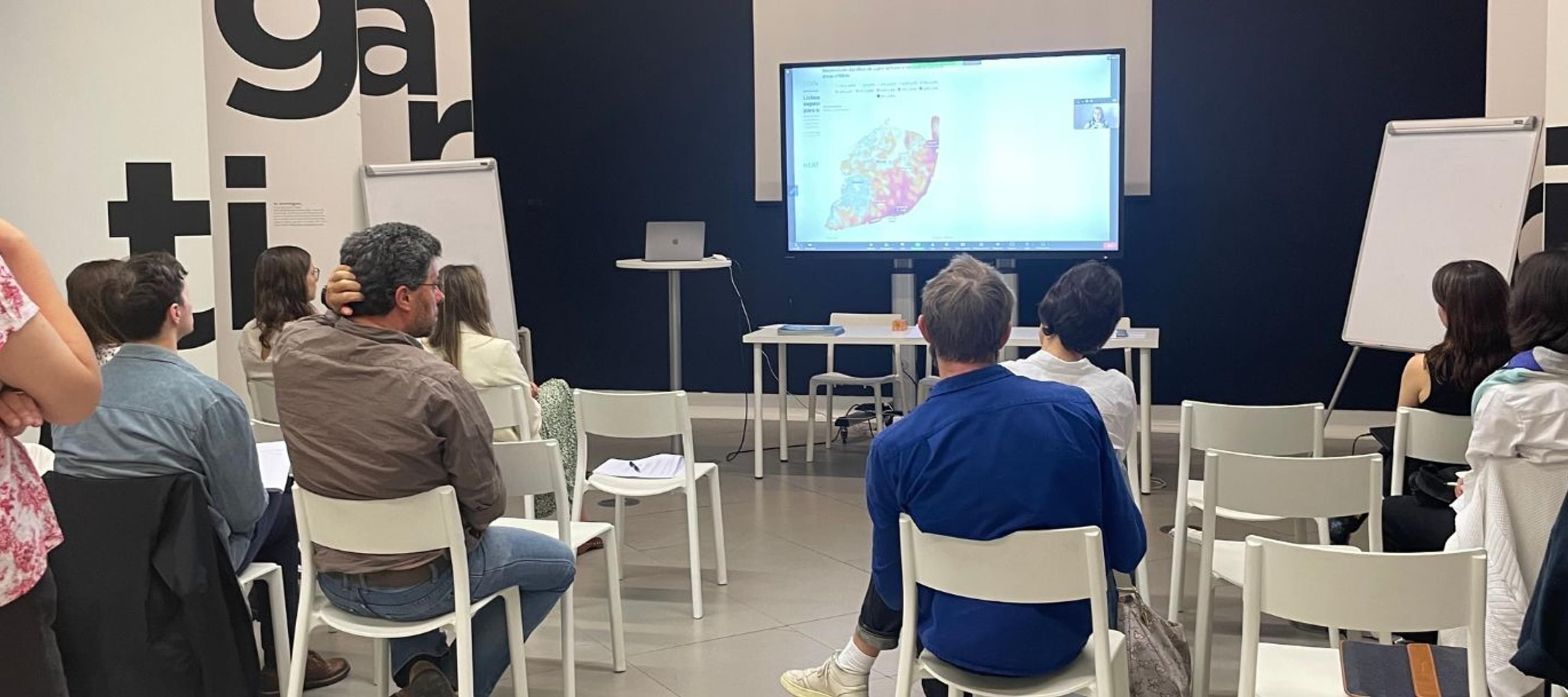Lisbon Visioning Workshop

As part of the ‘Building for Today and Tomorrow’ project, on April 29 2023, delegates from civil society, the private sector, and the government convened at the Centro Ciência Viva, Knowledge Pavilion in Lisbon to workshop and discuss pathways for a just transition in Lisbon's built environment.
The project combines research and visioning in eight cities worldwide, linking to regional and global advocacy to ensure that climate action regarding buildings and infrastructure is just and respects human rights. It particularly focuses on four areas: affordable housing; the rights of construction workers; meaningful participation; and non-discrimination / spatial justice.
Analysing the intersection of Affordable Housing and Nature-Based Solutions across the Public Sector, Private Sector, and Civil Society & Academia, several notable conclusions emerge from this session:
- Meaningful Participation and Collaboration: All sectors should prioritise meaningful participation in addressing climate change, housing issues, and the implementation of nature-based solutions. In the public sector, this involves integrating social partners into decision-making processes and incentivising public participation. The private sector should go beyond financial investment to solve housing problems and participate actively in nature-based solutions. Civil society and academia need to improve communication and collaborate more effectively among different organisations.
- Respecting Worker Rights and Inclusion in Decision-Making: The private sector must emphasise improving workers' wages, rights, and safety, and include them in decision-making processes. Simultaneously, reducing exploitation and poor treatment of workers, and increasing accountability in subcontracting is essential.
- Investment in Sustainable Solutions and Research: The public sector needs to invest in social and not-for-profit housing with a sustainability focus and apply funds like the PRR (Recovery and Resilience Plan) to address housing issues. Meanwhile, the private sector should invest in research, development, and more sustainable building projects, adapting legislation to suit all sizes and types of companies.
- Education and Counteracting Misinformation: Civil society and academia should collaborate with different organisations to facilitate knowledge sharing and the use of data to support policy advocacy. Active collaboration and joint communications among different organisations can help stop the spread of fake news and sensationalism, and unhealthy competition for the same space, as well as unlock funding opportunities.
Attendees brainstormed what they would like to see "more of" and "less of" from the public sector, private sector, civil society, and academia to bolster the pathways to a just transition in Lisbon's built environment and what was their imagined future/vision for the city.
Key insights from the visioning session included:
- A call for meaningful involvement in addressing climate change and housing issues, a reduction in poor planning, and less rigid programs from governmental bodies.
- The need to focus on increased worker rights and safety, collaboration with other entities, and less emphasis on immediate profit and exploitation of workers in the private sector and construction industry.
- Civil society and academia need to improve communication and collaborate more effectively with different organisations, this can help unlock funding, share knowledge and decrease the spread of misinformation.
The session was a significant step towards creating a roadmap for Lisbon's built environment that respects human rights and encourages a just transition on the road to net zero.
How do we make the vision a reality?
Table for workshopping specific barriers and opportunities
Cities of the future
Visions for a just and climate-resilient built environment
We commissioned young artists in Lisbon, Lagos, Jakarta, Prague, Copenhagen and Melbourne to bring the visions of a fairer, greener future for each city to life through visual art pieces that can serve as a unifying vision for a locally-grounded, fairer transitions.

Mafalda Filipe, Lisbon, Portugal